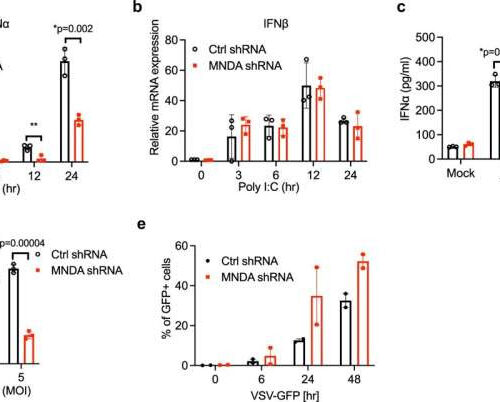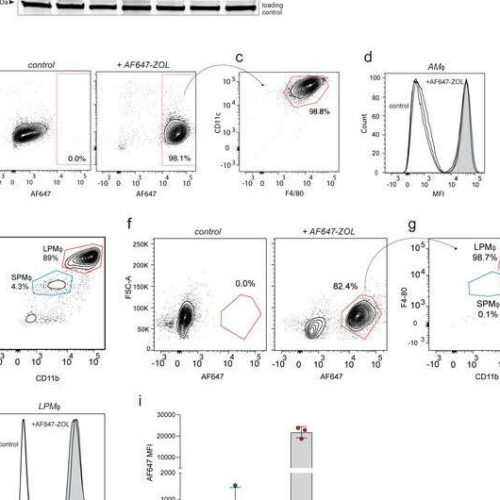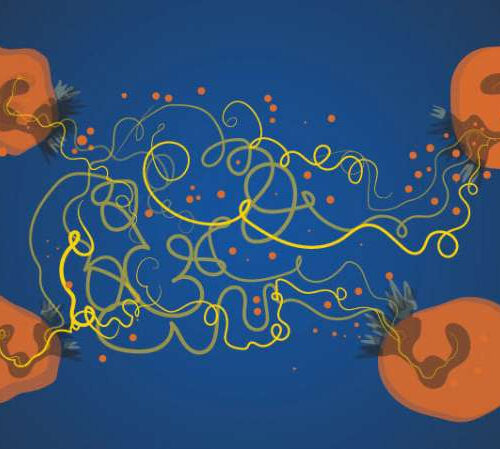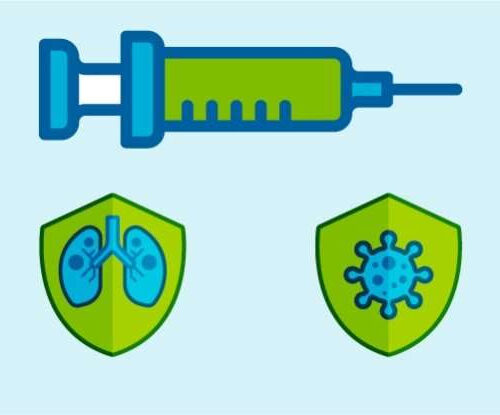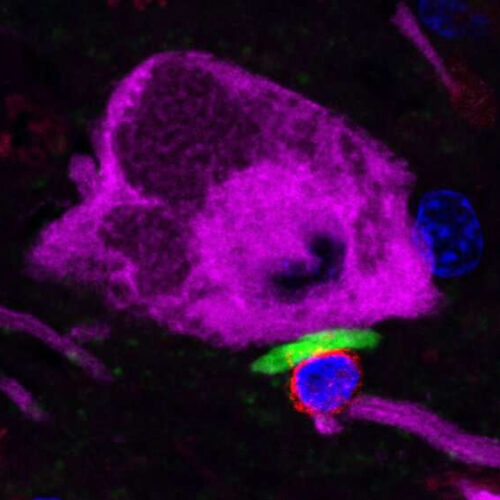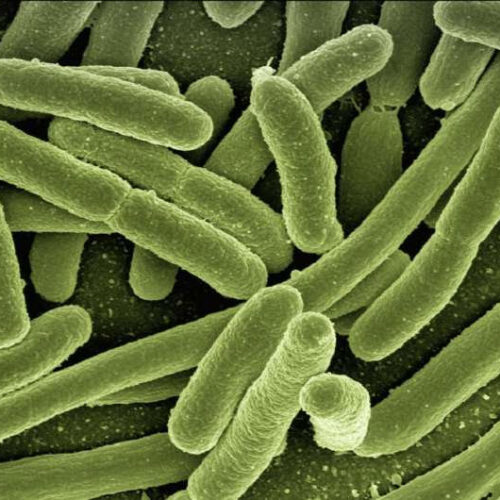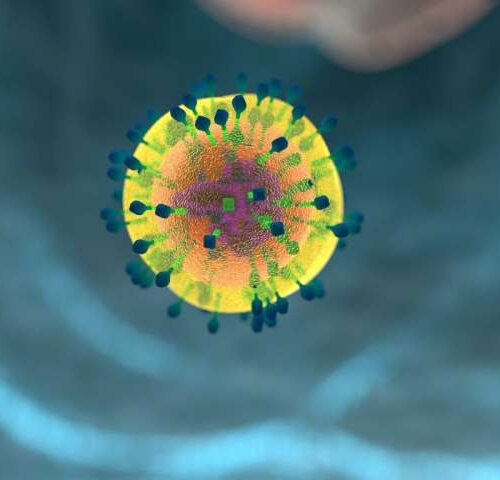by Trinity College Dublin MNDA regulates dsRNA- and virus-stimulated IFNα induction in monocytes. a, b Quantitative PCR analysis of IFNα (a) and IFNβ (b) mRNA from THP-1 cells expressing control or MNDA shRNA transfected with poly(I:C) (2.5 μg/ml) for the indicated times. c, d Release of IFNα protein from THP-1 cells expressing control or MNDA shRNA...
Tag: <span>immune response .</span>
Common osteoporosis medication boosts immune response in lungs
by Garvan Institute of Medical Research Bisphosphonate is internalized by alveolar and peritoneal macrophages in vivo. (a) An in vitro prenylation assay detects unprenylated Rab GTPases (uRabs) in bone marrow-derived macrophages after culture for 24 hr with 1, 5, or 10 μM zoledronic acid (ZOL) compared to 1, 5, or 10 μM AF647-ZOL. (b) FACS...
Immune response to seasonal coronaviruses may offer protection against COVID-19
by RIKEN Credit: Pixabay/CC0 Public Domain A research group led by Shin-ichiro Fujii of the RIKEN Center for Integrative Medical Sciences have found that individuals with a certain HLA type may be able to mount a killer T cell response to COVID-19, thanks to the T cells responding to a portion of the virus’s spike...
Drug made from pig intestine helps escape the ‘trap’ of clot-causing immune response
by University of Michigan Credit: Justine Ross, Michigan Medicine When the body attempts to fight off an infection, immune cells called neutrophils may shoot out spider web-like networks of toxic proteins to help contain the invaders. However, when not properly regulated, these web-like neutrophil extracellular traps, or NETs, play a role in forming blood clots and...
Untangling the immune response to vaccines
by Allessandra Dicorato, Broad Institute of MIT and Harvard Credit: Ricardo Job-Reese, Broad Communications The COVID-19 pandemic has turned a spotlight on the importance of vaccines, but also on key gaps in scientific understanding of how the immune system reacts to vaccines in general. Why does the immune response to some vaccines differ from person...
Lewy body dementia exacerbated by immune response
by Will Doss, Northwestern University A T-cell (red) interacting with an alpha-synuclein Lewy neurite (green) adjacent to a dopaminergic neuron (magenta) in a Parkinson’s disease brain. Credit: Northwestern University T-cells respond to buildups of alpha-synuclein, the aggregated protein clumps that are a feature of neurodegenerative diseases including dementia with Lewy bodies and Parkinson’s disease (PD), according...
An assessment of post-vaccination immune response to SARS-CoV-2 Delta in elderly and health care workers
By Dr. Priyom Bose, Ph.D. Sep 2 2021 Reviewed by Benedette Cuffari, M.Sc. Scientists across the globe have worked at record speed to develop vaccines against the severe acute respiratory syndrome coronavirus-2 (SARS-CoV-2), which is the virus responsible for the coronavirus disease 2019 (COVID-19). Several of these vaccines have received emergency use authorization (EUA) from...
ACE inhibitors found to reduce immune response to bacterial infections
by Bob Yirka, Medical Xpress Credit: CC0 Public Domain A team of researchers at Cedars-Sinai Medical Center has found evidence that suggests giving patients ACE inhibitors reduces the ability of their immune system to fight off bacterial infections. In their paper published in the journal Science Translational Medicine, the group describes testing of multiple ACE...
Strong immune response underlies acute kidney injury related to COVID-19
MAYO CLINIC ROCHESTER, Minn. — Mayo Clinic researchers have found that acute kidney injury associated with COVID-19 resembles sepsis-caused kidney injury, and the immune response triggered by the infection plays a pivotal role. The findings, published in Mayo Clinic Proceedings, also suggest that mitochondrial dysfunction — a loss of function in cellular energy production — is commonly found in...
New study raises prospect of ‘fine-tuning’ immune response through individual T-cells
by Cardiff University Credit: CC0 Public Domain Scientists at Cardiff University have uncovered a way of “fine-tuning” the body’s immune response to viral infections at the level of individual T-cells. T-cells play a crucial role in how the body responds to infection—and have become a key focus for scientists during the COVID-19 pandemic as they hunt...

